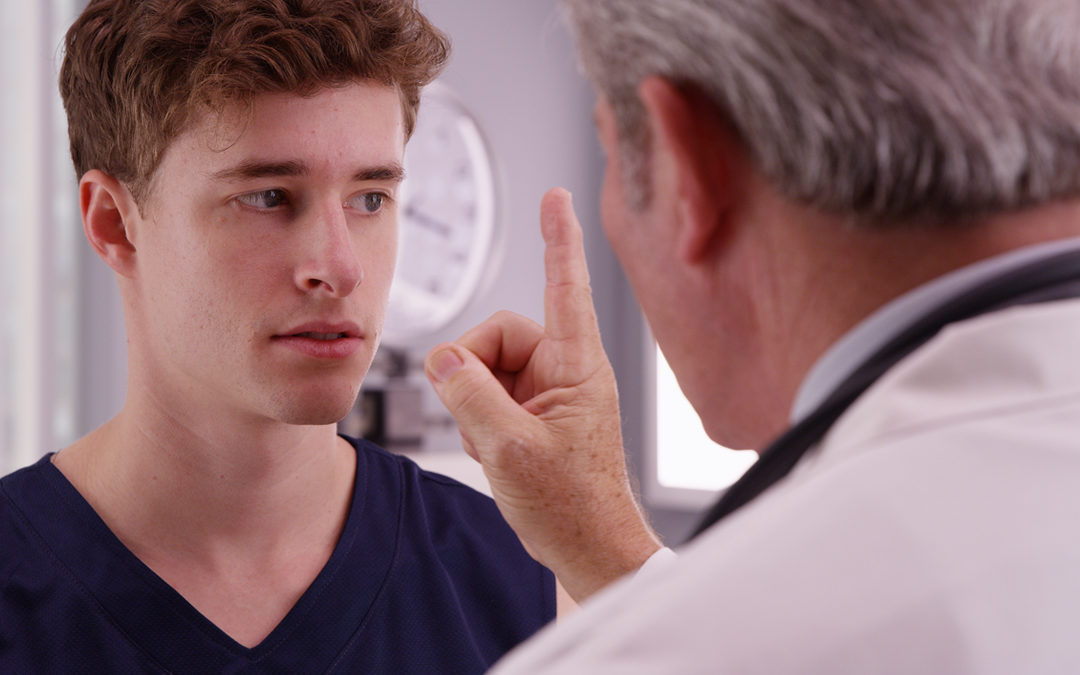A Traumatic Brain Injury (TBI) is a type of damage to the brain that can occur after a blow to the head. In the general population, most of these injuries are from car accidents or slips and falls. Many people experience TBI symptoms immediately after injury. But sometimes, symptoms do not appear until days or weeks later.
Delayed onset traumatic brain injuries pose many challenges when it comes to personal injury cases. The severity and type of symptoms can vary widely, and the delayed onset can increase the burden of causation. However, the Centers for Disease Control acknowledges that delayed onset TBI symptoms occur, and numerous medical studies support the relation to previously asymptomatic trauma.
TBIs and Long-Term Damage
Some people recover quickly from mild TBI, while others may experience long-term impacts. The symptoms can include problems with memory, concentration, or other cognitive abilities; changes in mood, personality, or trouble sleeping; vision impairment or dizziness; and more severe physical problems such as loss of sensation or dystonia.
Why Some TBIs Have Delayed Onset
Delayed onset symptoms of TBIs happen for a variety of reasons. For example, a person may experience shock or a flood of adrenaline or endorphins that delay pain or other symptoms after an accident. Or, it could take days or weeks for the brain to swell and begin causing problems. In addition, sometimes symptoms mimic other medical or psychological issues and are not immediately recognized as related by the individual or treating physicians.
Medical Treatment and TBIs
Anyone in a car accident or slip and fall injury should seek medical attention as soon as possible, even if they aren’t feeling symptoms immediately. A doctor can document injuries and provide warning signs of a potential TBI so individuals know what to look for as they recover.
But when it comes to medical treatment and the delayed onset of symptoms, particularly when the person does not seek immediate medical care, attorneys are tasked with determining the validity and necessity of the victim’s medical expenses.
In addition to ascertaining whether the delayed symptoms are related to the personal injury in question, they also must confirm that the medical charges associated with the claim meet the requirements of “usual, customary, and reasonable” (UCR) for the geographical region.
Medical Billing Expert Witnesses and UCR
Delayed onset TBIs and the associated medical costs are increasingly being called into question. An expert witness in medical billing can help determine if charges related to their diagnosis and subsequent treatment meet UCR criteria.
Attorneys work hard to gather documentation and evidence to prove or defend these cases. Knowing if the medical charges are inflated or fall below what constitutes UCR can significantly impact the outcome. It’s not an area to be ignored when the stakes are so high.
A medical billing expert can review your case’s medical bills and invoices to determine if they meet UCR. Their expertise and access to benchmarking databases can provide a definitive answer regarding UCR and provide expert witness testimony in deposition or trial.
Veritas Experts Can Help
Whether you are working on behalf of the claimant or the defendant, Veritas Experts can help.
In 2021, the Texas Supreme Court decided that medical billing specialists are qualified to audit medical charges and testify to what constitutes fair and reasonable billing practices, per §18.001(f) as set forth by the Texas Supreme Court in Alaniz v Allstate.
This was a landmark decision, as it gave attorneys a new tool to use when evaluating and negotiating personal injury settlements. Veritas Experts is at the forefront of this new industry, with a team of experienced medical billing experts who can help you understand the charges associated with TBIs and other injuries.
If you have a personal injury case that involves delayed onset TBI symptoms or need to audit medical charges associated with other cases, contact Veritas Experts today to learn how we can help.

